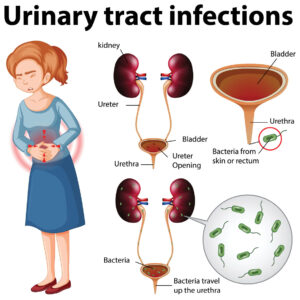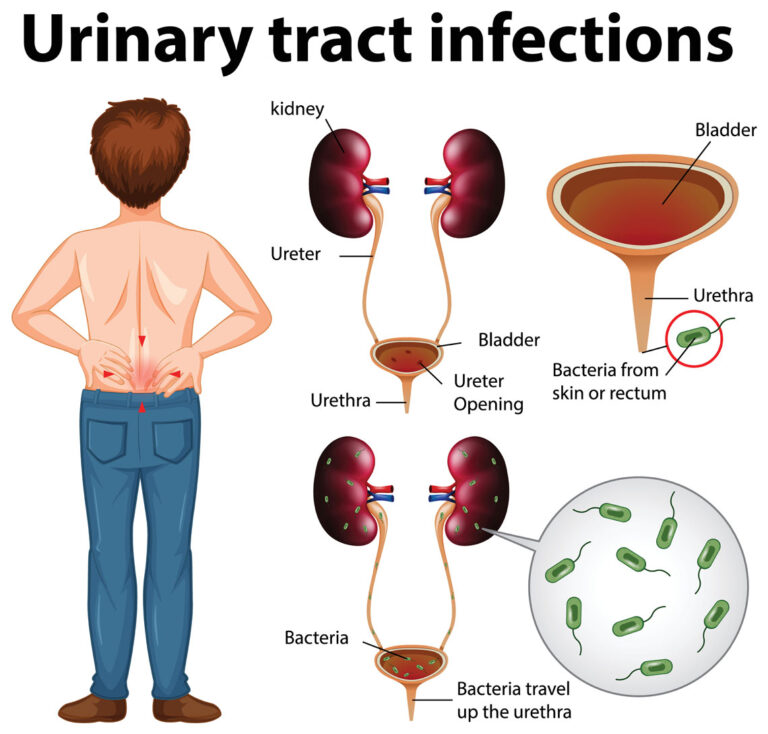What is a urinary tract infection (UTI)?
A urinary tract infection is a very common infection that happens when bacteria travels from the skin or rectum into the urethra. The bacteria stay and multiply in the urethra and spread in the urinary tract. This infection can also travel up to the bladder and cause bladder infection. Furthermore, chronic UTIs can cause kidney infection which is far less common, but more dangerous.
What causes UTIs?
There are many risk factors for UTIs:
- Females have a shorter urethra that is more exposed to the rectum, so it’s more likely for the bacteria to transfer to the urinary tract
- Past UTIs
- Being sexually active
- More common in older adults and young children
- Structural issues in the urinary tract, such as an enlarged prostate
- Changes in the body that result in changes in normal flora, such as menopause, douching, and spermicides
- Poor hygiene
- Pregnancy

What are some symptoms of UTI?
- Pain while urinating
- Burning sensation when urinating
- Frequency of urination without the sense of emptying the bladder completely
- Blood in urine (sometimes it may just look cloudy)
- Foul smell
- Feeling pressure or cramping in the groin (females) or the lower back (males)
- UTI has different presentations in various ages. For example, your elderly parent or grandparent may present with sudden confusion, or your young child may have fever but no urinary issues.
Can I treat UTIs at home?
Not really, since a bacteria causes the UTI, you need antibiotics to treat the infection. Testing your urine will show what types of bacteria are causing your symptoms and your provider can prescribe the specific antibiotic to that bacteria. This is an effective process to eradicate the infection and avoid recurring symptoms. Keep in mind that antibiotics can cause side effects just like any other medication. Your provider will explain the side effects and can help you reduce them.
When prescribed antibiotics, it’s important to note:
- Take the antibiotics exactly as prescribed and don’t stop when you feel better
- Don’t save the antibiotics for later. Complete the duration as prescribed. Otherwise the bacteria will not be removed from your body completely.
- Do not share or make recommendations regarding effective antibiotics that you took previously. Everyone needs to be evaluated separately and receive antibiotics specific to their condition and with the correct dosage and duration.
While prescribed medication can safely kill the bacteria, there are some habits that you should develop to recover quickly and avoid future UTIs such as:
- Urinate after sex
- Drink lots of water
- Showers are better than baths
- Avoid douching, application of powders and sprays, and creams
- Wipe front to back
For more information about urinary tract infections, click here.
Please note that this information is intended for general education and does not apply to specific cases. Please schedule an appointment for an individualized assessment and a long-term plan. We will provide complete support until you are symptom free and you stay symptom free.
Return to our Health Blog.
